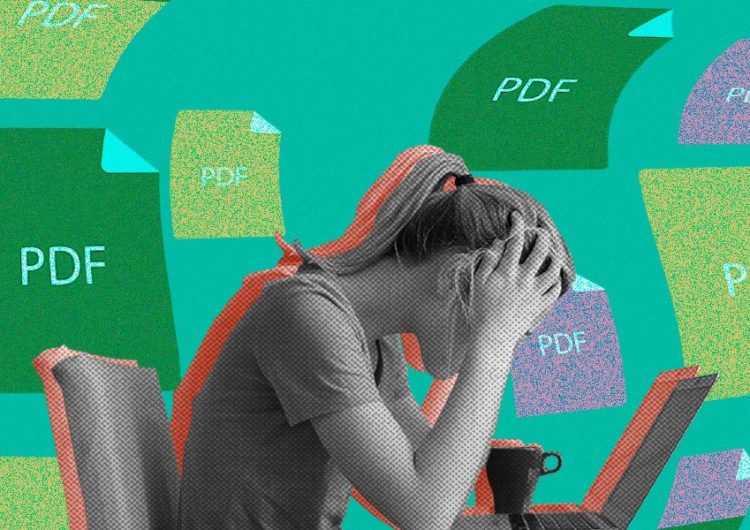As a mid-2010s college student, most classes meant squinting at a phone screen, pinching my fingers to zoom in on a textbook’s PDF. I’ve fumbled around when a prof asks for a specific line, wishing for PDF’s kinder little sister, the EPUB (Side note: I should’ve really converted that).
Well, it seems that folks like me aren’t alone in this niche struggle. Studies have been conducted on the PDF’s inconvenient interface, with some dating back to 1996. Jakob Nielsen, co-founder of the user experience research and consulting firm Nielsen Norman Group, recorded the shortcomings of the Portable Document Format for the last two decades, with his most recent piece titled “PDF: Still Unfit for Human Consumption, 20 Years Later.”
Here’s the TL;DR of it: PDFs are pretty much problematic when it comes to online reading, specifically because they are optimized and intended for print—not for screens. In the article Nielsen co-authored with user experience specialist Anna Kaley, usability issues include slow load times, a “jarring” user experience, unnavigable content masses and how PDFs are basically sized for paper.
“It’s inherently inaccessible, unpleasant to read, and cumbersome to navigate online,” they write. “Neither time nor changes in user behavior have softened our evidence-based stance on this subject. Even 20 years later, PDFs are still unfit for human consumption in the digital space.”
It’s inherently inaccessible, unpleasant to read, and cumbersome to navigate online.
Still, some are quick to point out that PDFs aren’t to blame. “Nielsen is right about one thing: People often use PDF when they ideally would use HTML,” says Duff Johnson, CEO of the PDF Association, to Motherboard. “That’s not really a problem with the PDF format, merely a testament to the ease of creating PDF and its reliability in contrast to available alternatives.”
So, what’s the solution to handling awkward PDFs? If they can’t be converted and profs insist on them, then these files should have an HTML gateway page at the very least. This would summarize the key points and give users the option to download the file instead. BRB, let me just slip this article into my teachers’ pigeon boxes now.
Read more:
Protest online safely with these digital privacy tools
Chrome tab warriors, Google will let you group tabs together soon
Check out the new iPhone that’s pocket and budget-friendly
Art by Eliel Jeuz Sayo

























Comments